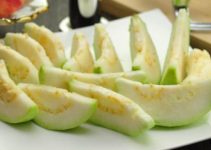What are the non-medical and medical benefits of coconut? This article lists 38 of them.
The coconut tree, or “Cocos nucifera” is a member of the palm tree family in the tropics. The name comes from the old Portuguese word: coconut means the “head” or “skull” after the three (3) circles that can be seen on a coco shell resembling a face.
Coco is truly a cultural icon of the tropics. Three (3) countries, including Indonesia, India, and the Philippines, produce about 75% of the world’s supply of coconut.
So the price of this ought to be increased in the market to help the coco farmers and coco landowners and expand the industry using coconuts.
Medical Benefits of Coconut
The following are amazing coconut benefits for a healthier you.
1. Lowers cholesterol: prevents heart disease
Consuming coconut benefits the heart. Polynesia Islands frequently eat coco meat that lower the rates of heart disease than those who follow the western diet.
Daily consumption of 30 mL of virgin coconut oil or VCO increases high-density lipoprotein (HDL). HDL absorbs bad cholesterol and flushes these harmful substances from the body through the liver. Thus, high levels of HDL lowers heart disease risk and prevent a stroke from happening (Chinwong et al., 2017).
2. Controls blood sugar levels
It promotes blood sugar control. Coconut oil helps lower blood sugar levels (Fife, 2006).
3. Has anti-cancer potential
Yong (2009) suggested that coconut water has cytokinins which have potential anti-cancer properties. They need more research to confirm this important component of coconut water.
Cytokinins regulate plant cell cycle and other important developmental processes.
4. As endurance booster
Coconut meat contains healthy fatty acids, a type of fat which is easier for the body to digest quickly than the animal fats. These fats in the coco boost the endurance of trained athletes, especially the aging ones (Martins & Waldschutz, 2012).
5. Kills harmful bacteria
It can help kill some of the unwanted bacteria and virus in your mouth and further protect you from infections.
In India, it has been common practice to use pure coconut oil as mouthwash to achieve oral health. They call this oil pulling. Coconut oil effectively controls bacteria in the mouth (Pavithran et al., 2017), among other systemic benefits. It has anti-microbial properties.
6. Helps reduce weight
It helps you lose weight. Research has shown that women who take coco oil daily show a reduction in waist circumference, compared to those women taking soy oil daily (Assuncao et al., 2009).
7. Reduces belly fat
Coconut can reduce belly fat because it has vitamin H or biotin — part of the B complex group. All the B vitamins help convert carbohydrates that power the body. Further, vitamin B complex break down fats and protein into usable substances that the body needs.
According to Assuncao et al. (2009) in their study of women with abdominal obesity, coconut oil promotes a reduction in belly circumference.
Non-Medical Benefits of Coconut

A coconut fruit — one of the most significant crops in the tropical countries like the Philippines has its endless many uses and functions for our day-to-day life.
- coco milk for Filipino dish and a lot more,
- serves as a garnish for cooking viands,
- leaves for suman, a Filipino delicacy
- coco husk “bunot” for cooking
- halo-halo in a coco shell,
- culinary uses, desserts,
- coco milk, coco cream
- building materials,
- fresh buko salad,
- hair treatment,
- hot oil for hair,
- conditioner,
- broomstick
- buko juice,
- palm wine,
- cosmetics,
- medicine,
- shampoo,
- bathsoap,
- flavoring,
- for food,
- charcoal,
- vinegar,
- copra, and
- oil for its many uses.
6 Coconut Oil Benefits
Homemade coconut oil has many benefits:
1. Natural remedy for dandruff
Coconut oil is used as a natural remedy for dandruff. This has lots of causes like dry skin on scalp, sensitivity to hair products are the common culprits. Prevents flakes and clean your hair and scalp without stripping its moisture.
2. Serves as food ingredient
Coconut oil serves as a healthy ingredient for Filipino cuisines. It’s a history shaped by colonialism. The Spanish Magellan made landfall in the Philippines in 1521 introducing the Liberian ingredients, etc. Regionality plays a big role in Filipino cooking. Each island has their own flavor.
3. Makes hair healthy
Coconut oil makes hair healthy and beautiful. Use as hot oil for a hair silky and soft, and hair treatment for dry, frizzy hair.
4. Treats falling hair
Coconut oil treats falling hair. Hair growth will be restored as coconut oil has Vitamins H, D, and E. Coco oil penetrates deep in your hair shaft and prevents protein loss. Avoid using harsh products.
5. Used as anti-lice
Coconut oil serves as an effective lice remedy. Some studies show that re-treating takes about 7 to 9 days after the 1st treatment. Some clinical studies have shown that some natural plant oils may also kill lice by suffocating them.
6. Regrows hair
Coconut oil makes hair grow quickly. Avoid daily hair blower as it will lead to dry hair.
It contains vitamin E that strengthens your hair’s roots.
Steps on How to Extract and Cook Coconut Oil
You can prepare coconut oil by following the procedure below:
- Mix the grated coco with water. In a large bowl or container, squeeze over to extract as much as coco juice as possible. Repeat twice. Strain into a non-stick skillet. Discard the solid coconut residue or use it to enrich the soil in your garden.
- Bring the coco milk liquid to a boil and cook till the mixture is dry for about 30 minutes or more. It will curdle as it dries, leaving coco oil at the soups called latik.
- You know it’s done when the coco milk white color changes to a crystal clear white.
- Get the coco curds for dessert toppings or for meals.
- Set the liquid aside. Let it cool. Place in a clean bottle or jar.
The byproducts of boiled coco milk cream:
- Coco curds
- Coco oil
Related Bible Verse
Now on the first day you shall take for yourselves the foliage of beautiful trees, palm branches and boughs of leafy trees and willows of the brook and you shall rejoice before the LORD your God for seven days. You shall thus celebrate it as a feast to the LORD for seven days in the year. It shall be a perpetual statute throughout your generations; you shall celebrate it in the seventh month. You shall live in booths for seven days;
Leviticus 23:40-42
References
Assunçao, M. L., Ferreira, H. S., dos Santos, A. F., Cabral, C. R., & Florêncio, T. M. (2009). Effects of dietary coconut oil on the biochemical and anthropometric profiles of women presenting abdominal obesity. Lipids, 44(7), 593-601.
Chinwong, S., Chinwong, D., & Mangklabruks, A. (2017). Daily consumption of virgin coconut oil increases high-density lipoprotein cholesterol levels in healthy volunteers: a randomized crossover trial. Evidence-Based Complementary and Alternative Medicine, 2017.
Fife, B. (2006). Coconut oil and health. In ACIAR Proceedings (Vol. 125, p. 49). ACIAR; 1998.
Martins, A., & Waldschutz, D. (2012). Coconut Water as a Sports Drink and Its Effects on the Fitness of Aging Athletes. Asian Journal of Exercise & Sports Science, 9(2).
Pavithran, V. K., Krishna, M., Kumar, V. A., Jaiswal, A., Selvan, A. K., & Rawlani, S. (2017). The effect of oil pulling with pure coconut oil on Streptococcus mutans: A randomized controlled trial. Journal of Indian Association of Public Health Dentistry, 15(3), 200.
Vijayakumar, V., Shankar, N. R., Mavathur, R., Mooventhan, A., Anju, S., & Manjunath, N. K. (2018). Diet enriched with fresh coconut decreases blood glucose levels and body weight in normal adults. Journal of Complementary and Integrative Medicine, 15(3).
Vogel, C. É., Crovesy, L., Rosado, E. L., & Soares-Mota, M. (2020). Effect of coconut oil on weight loss and metabolic parameters in men with obesity: a randomized controlled clinical trial. Food & Function, 11(7), 6588-6594.
Yong, J. W., Ge, L., Ng, Y. F., & Tan, S. N. (2009). The chemical composition and biological properties of coconut (Cocos nucifera L.) water. Molecules, 14(12), 5144-5164.
[cite]



